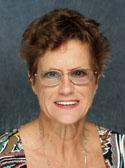Teaching Reflections: Lisa P. Diehl
Editor’s Note: This is the sixth in a series of blog posts in which teaching award winners will share their experiences, philosophies, and techniques. To read the previous posts, click here.
Lisa P. Diehl is a senior lecturer in English and a recipient of the 2019 Teaching Excellence Award.
My most important objective as an educator and leader is to promote learning by engaging students in their learning environment, encouraging higher order thinking skills, and respecting students’ opinions and backgrounds. I have a responsibility to help my students be successful by working with their minds, hearts, and souls. My goal as an educator is to give back what I received as a struggling a student: belief and confidence in the ability to learn, grow, and accomplish dreams.

Throughout my teaching experience, I have endeavored to meet the following goals:
Promote critical thinking and creativity. Classroom participation and open class discussion are essential to my teaching method. I emphasize the immense variety of possible interpretations; and while offering cultural, historical, and biographical contexts, as well as various critical interpretations of the texts from other readers, I encourage students to formulate and share their own responses in class discussions and writing assignments. I demonstrate respect for all student responses, but I also challenge students to support their views with evidence from the texts and to question the interpretations that I and other students propound. For composition assignments, I conduct “peer response workshops” in which students read and critique drafts of each other’s work. This collaborative-learning approach to composition teaches students to give and receive constructive criticism and allows them to take advantage of the critical abilities and varied interpretive approaches of their fellow classmates in making their own composition decisions. My students have commented on my effectiveness in critical thinking in an online student survey: “[Ms. Diehl] did an excellent job of making us think critically.” “She encouraged us to think outside of the box and challenged our ideas.”
Acknowledge and support each student as an individual learner. I give each student personal attention and become acquainted with their educational needs. For every writing assignment, I hold student/teacher conferences, and I make myself available for other meetings throughout the semester on an as-needed basis. I also ensure that my interaction with students contributes to their sense of confidence in their reading and writing abilities. I welcome opportunities to see work that my students have done for other courses or to read their personal, nonacademic compositions. By projecting enthusiasm for my students’ work as well as for the subject I am teaching, I demonstrate to the students my dedication to them as individuals, which often inspires in them a greater dedication to the course. My approach has prompted positive comments from my students: “[Ms. Diehl] was great with presenting the lessons in a way that fit all of the students learning methods.”
Participate as a fellow learner with students. Learning from students is one of the most rewarding aspects of teaching. While offering students the benefit of my knowledge and experience in my discipline, I encourage them to use that knowledge as a starting point for developing their own approaches to reading and writing. I strive to indicate my willingness to revise my views and learn from my students’ discoveries.
Overall, the recognition of learning differences and the necessity of sharing ideas with one another forms the basis of my teaching philosophy in any learning environment.
Leave a Reply